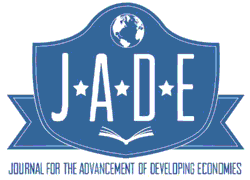Institute for the Advancement of Developing Economies

Journal for the Advancement of Developing Economies
Date of this Version
2014
Document Type
Article
Citation
Journal for the Advancement of Developing Economies, Volume 3, Issue 1, 2014
doi:10.13014/K29P2ZTV
Abstract
Counterfeiting has been a menacing problem to global economies; however, it has been more devastating to developing and under-developed countries as a result of its impacts on various aspects of the economic development and health conditions of those countries. The consequences are abundantly documented, evidential and troubling. In addition to the fact that counterfeiting results in distribution of fake, cheap, and substandard products, it has very dissuasive effects on the entrepreneurial fabrics of a society. As various governments and agencies attempt to combat the menace and mitigate the consequences, the perpetuators are becoming even more sophisticated and resolute – encouraged and motivated by the current technological terrains. Most current methods and techniques utilized in combating product counterfeiting usually tend to concentrate on the “detect, catch and prosecute” approach by those governments and agencies. Besides the resource extensiveness of this approach, which is mostly unattainable, the “detect or catch” part may happen, but the “prosecute” part has always been greatly marred by the corruptive environments that are usually endemic in those societies. When technology-based approaches are used in the war against counterfeiting to empower the consumers, either it’s non-ubiquitous, easily compromised by counterfeiters, difficult to use or not cost-effective to the consumers. As a result, what is needed is a technology and consumer-centric, ubiquitous, secure, easy-to-use, and cost-effective system to greatly alleviate this nuisance.
Included in
Econometrics Commons, Growth and Development Commons, International Economics Commons, Political Economy Commons, Public Economics Commons, Regional Economics Commons


Comments
Copyright 2014 JADE.